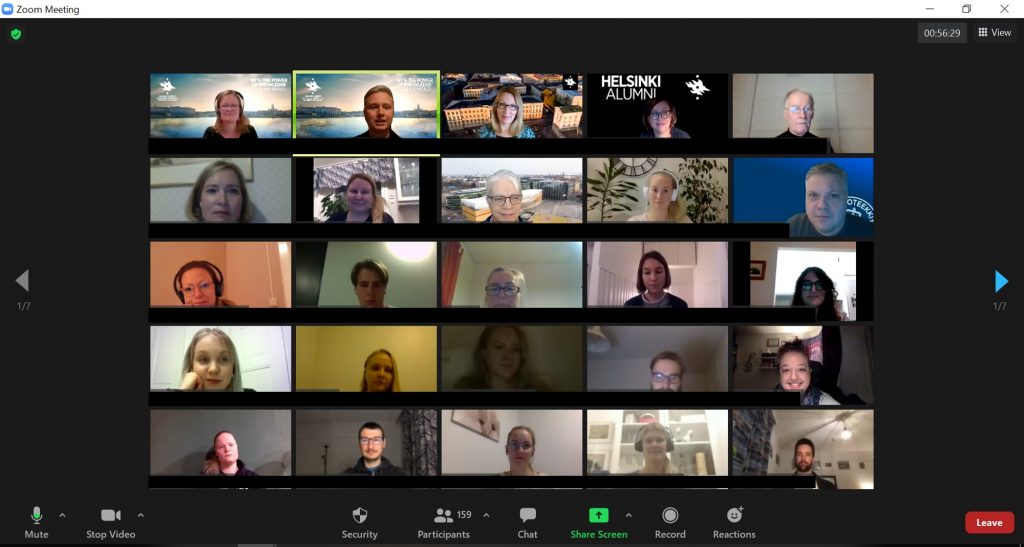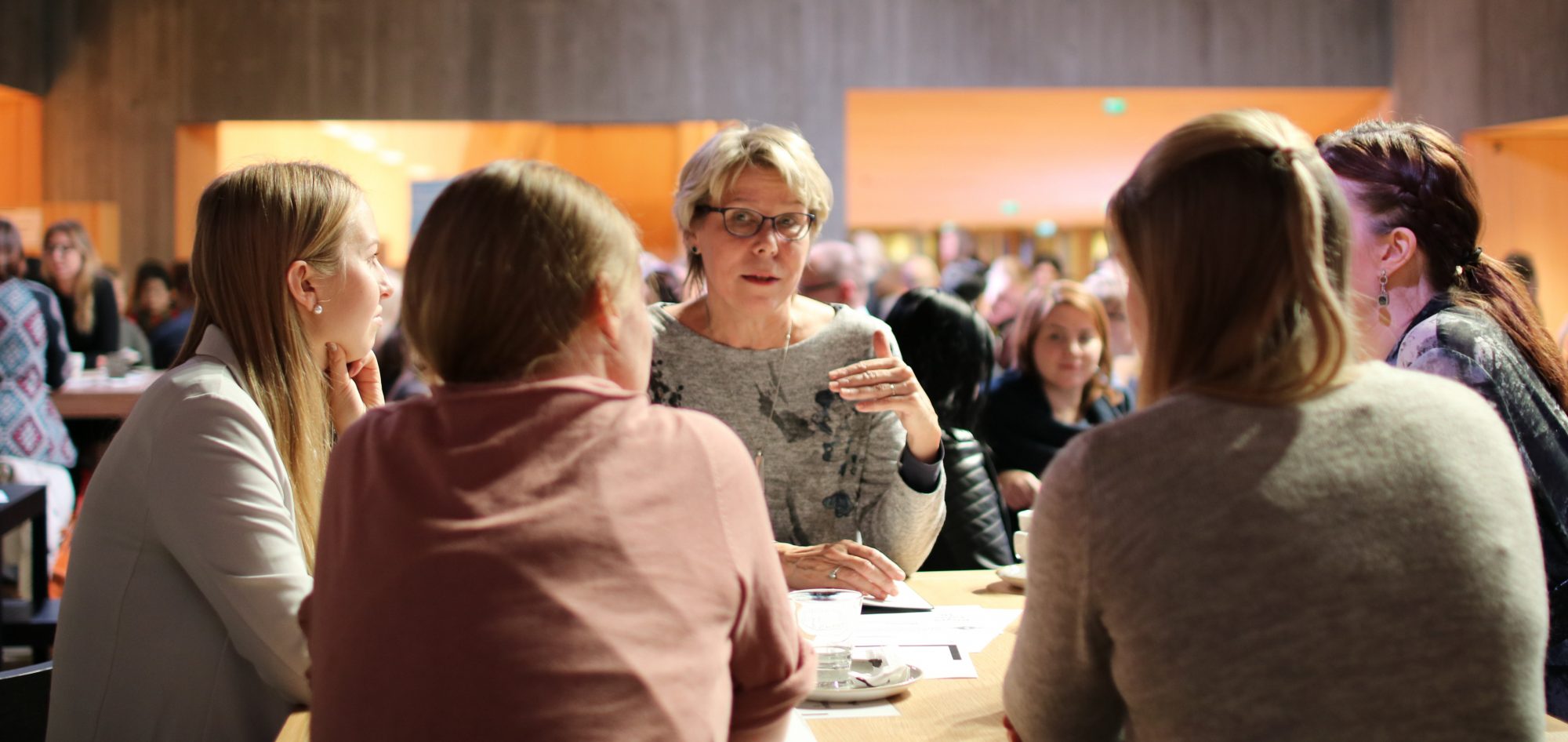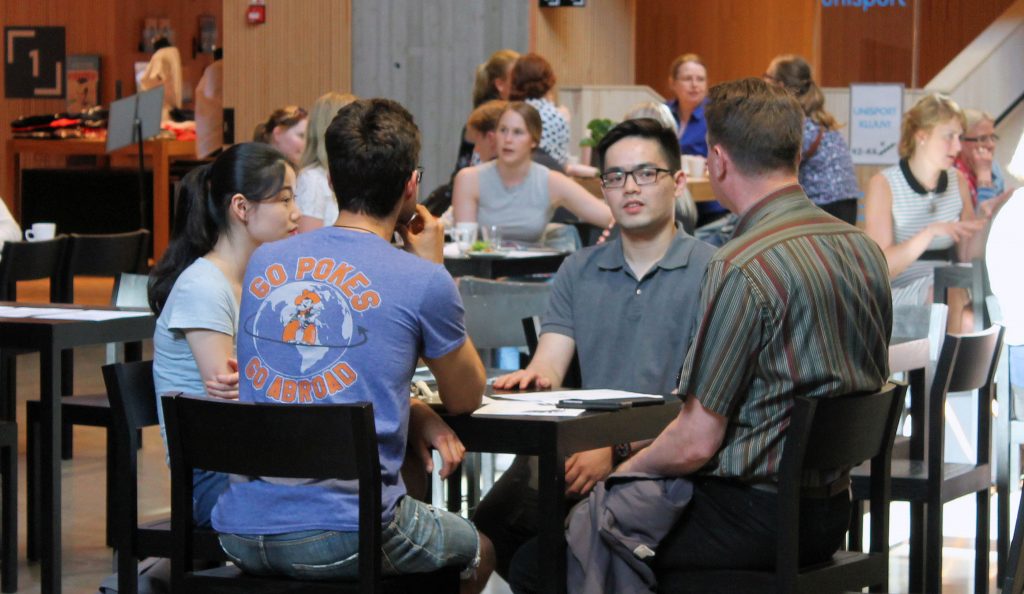
More than 900 hundred students, 250 alumni mentors and countless hours spent with meaningful career discussions. Group mentoring at the University of Helsinki is already a modern tradition.
The Group Mentoring Programme kicks off with a celebration year this November. It is the 10th season of the programme and 10th anniversary since its first pilot for the Faculty of Agriculture and Forestry in 2010. During this time the programme has gotten a lot of recognition for enhancing the employability and work life skills of university students, for example from Sitra (article in Finnish).
In its first years the programme consisted only of a few groups but since then, it has expanded to all of the faculties at the University. The main objective has remained the same: to provide support for students in their career planning with the help of an alumni-mentor as well as with the peer-support from other students.
“One of the main reasons I wanted to join the mentoring programme was the certain kind of insecurity and lack of self-confidence in my professional skills and I can definitely say that mentoring gave me confidence with these matters”, says a students who participated in group mentoring in 2016–2017.
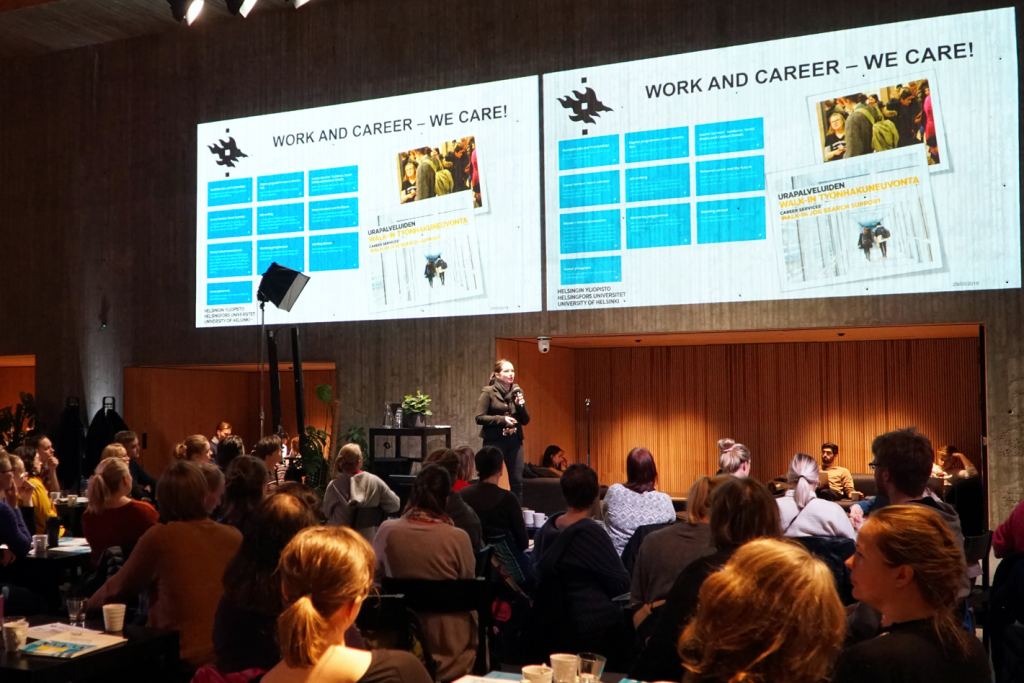
Background in ”mini mentoring” created by a student organisation
The University of Helsinki Group Mentoring Programme model was first developed based on the “mini-mentoring” created by the alumni council of Status, the student organization for Social Psychology.
– There was a need for new tools to support the career planning of Master’s Degree students. We had seen some forms of pair mentoring at the University, but we wanted to create something that could measure up the high student amounts at the University of Helsinki in terms of mentoring, says Eric Carver who worked at the University Career Services at the time (currently at the Strategic Services for Teaching).
The first Group Mentoring Programme was piloted for the Faculty of Agriculture and Forestry in 2010. After positive results, the programme was developed further in cooperation with Career Services, Alumni Relations and the VALOA –project at the University of Helsinki. The programme was unique at the time since group mentoring hadn’t been seen in Finland as such before.
In 2012 the Group Mentoring Programme was introduced at the University in cooperation with the Faculty of Social Sciences and Aleksanteri Institute. This model was already close to the current form of mentoring, in which an experienced alumni mentors a small group of students.

“As a mentor, I feel like I can help the students with the practical questions the university studies do not necessarily give and answer to: what are the skills valued in the working life? How do I apply for different kinds of jobs”, said Otto Mattsson 2017, having participated in the programme as a mentor several times..
From a few groups to a multidisciplinary, university-wide programme
Since the first programme in Spring 2012, group mentoring has grown to its current form step by step. In the second season, the Faculty of Educational Sciences (formerly Behavioral sciences) and the Faculty of Arts (FHKT-department) joined the programme. Nowadays Career Services and the HelsinkiAlumni-network coordinate the programme.
– Every year our goal is to gather our mentors with the objective that there are appealing groups for students in as many of our faculties as possible. What this means is that we seek mentors from various sectors of working life and with different study backgrounds, Career Councelor Salla Wilén from the Career Services and Liason Manager Marja Peltomäki from alumni relations explain.
Multidisciplinary also gives mentoring its own special characteristics, since the group formation is not only based on the field of study. A group might consist of e.g. students of arts, biology and environmental studies as well as students of science.
– Multidisciplinary was introduced in 2016 and the feedback has been positive every year. In working life study, backgrounds are mixed either way so it is natural to acknowledge this also in mentoring, the coordination team of the programme comments.
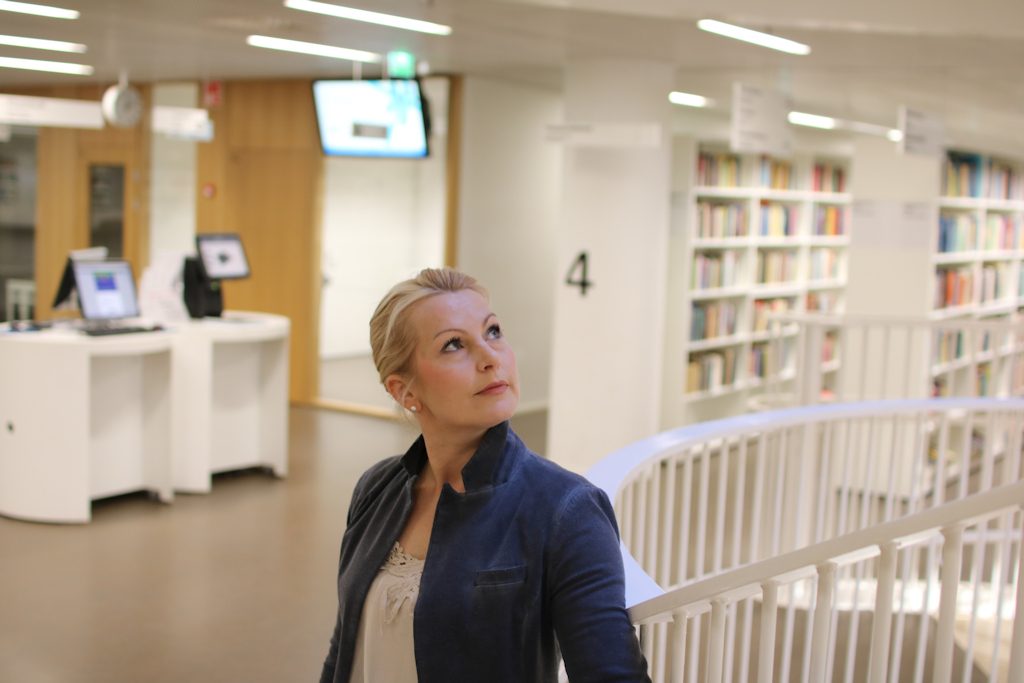
Development steps with internationalization, workbook for mentoring and mentoring videos
Internationality has been an essential part of the programme since 2014, when English and Swedish speaking groups were introduced to the programme. At the time this addition was in line with the internationalization strategy of the university. In 2019, the programme participated in the International talents accelerating growth –project and as a result, the amount of English speaking groups was increased.
– In this season we have 8 English speaking groups. There are both Finnish and international students in these groups which is great for their mutual networking, says Career Counselor Anna Storgårds who works in the project.
The training of mentors and actors for the mentoring process has been a part of the programme from the beginning. The first mentoring guide book was released already in 2012. The current Workbook for Mentoring (2017) was created in cooperation between Career Services, HR Development of Occupational and Wellbeing unit and Tevere Oy and it has received a lot of positive feedback.
– We hand out the Workbook for everyone at the beginning of the process but it is also available free of charge online. Our groups use the Workbook actively but we’ve also received recognition and reference requests from other organisations who want to use is in their own mentoring programmes, Career Services staff comments.
In addition to the Workbook, mentors and actors also receive guide videos created by Tevere Oy, in which they are instructed the basic of a mentoring process.
“The group was excellent. At first I thought mentoring would work best as a pair, but I think I was wrong – a group provided five times the joy! I heard more experiences and received peer support”, comments a student who participated in the programme in 2013-2014.
Mentoring supports career planning online as well
Career Services is currently making a theoretical change to the graduate capital model in terms of career planning. In this model, the student’s expertise is seen as a whole formed by different capitals: human, social, cultural, psychological and identity capital. Group mentoring supports all of these capitals.
– The capital model is a holistic view of resources connected to yourself, your operational environments and the skills you have within your career and employability. They are what formulates what we call expertise, explains Wilén.
The 10-year anniversary season begins in exceptional circumstances as the COVID-situation has moved the programme completely online. However, this also has a positive impact: this season the programme has variety of mentors participating not only from the Helsinki-capital region, but also from around Finland and the globe. There are 37 mentors and 139 actors participating in the programme, which is the highest number since beginning of the programme
– There is a high demand for mentoring at the moment. The online version of the mentoring programme will certainly bring us new learning experiences with technical solutions but also in how the group forming process works out in distance. We are looking forward to this season, says the coordination team of the Group Mentoring Programme.
